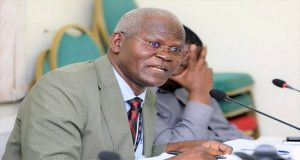
In May 2023, Uganda passed a controversial anti-homosexuality law that imposed severe penalties for same-sex activities, including life imprisonment and even the death penalty for ‘aggravated homosexuality’ which has exposed many youths to risk.
Despite its harsh provisions, there has been little or no evidence of the law being enforced hence raising questions about the government’s true intent of passing the Anti Homosexuality Act 2023. While the law was introduced with much political and public attention, its lack of application has led to speculation that it may serve more as a political statement than a genuine legal framework.
Since the law’s enactment, notable cases of individuals promoting or practicing homosexuality, such as activist Allan Ssekasamba, have gone unpunished. Ssekasamba has been accused of using his residence in Bunamwaya, Kampala, as a shelter for LGBTQ+ individuals and organizing gatherings that involve high school students, and activities that violate the law.
Despite public outcry and reports to authorities from local parents like Robbinah Ssekajja, no legal action has been taken against him. His public advocacy for queer rights on social media, mainly on X (formerly twitter) goes uncensored, further highlighting the gap between the law and its enforcement.
Who must then suffer the wrath of Article 11 of the AHA 2023 which provides for the offence of Promoting Homosexuality which provides for a maximum sentence of twenty years’ imprisonment if not for people like Allan Ssekasamba?
This selective inaction raises the possibility that the government may be using the law more as a political tool than a moral crusade.
By passing the law, Uganda appeared to align with conservative domestic groups while asserting sovereignty against Western pressure. However, enforcing the law too strictly could lead to international backlash and jeopardize foreign aid. As a result, the government may be deliberately choosing not to implement the law’s harshest penalties, allowing LGBTQ+ advocacy to continue largely unchallenged. It is this mistrust in the law that invokes locals to punish Homosexuals themselves. (Mob violence)
The inconsistency in the enforcement of the Anti-Homosexuality Law underscores a broader issue of political will. While the law exists on paper, its selective application suggests that Uganda’s government is not fully committed to its strict enforcement. Instead, the situation reveals a deeper problem—legal frameworks alone are insufficient if there is no genuine intention to enforce them.
For concerned citizens like those in Bunamwaya, the lack of action by authorities raises serious doubts about the government’s commitment to protecting the moral values it claims to uphold and may result into serious communal violence against the perpetrators.








